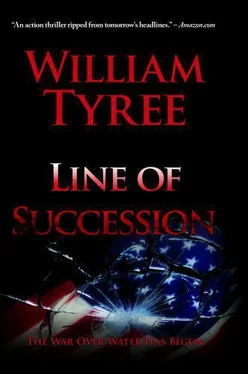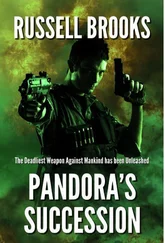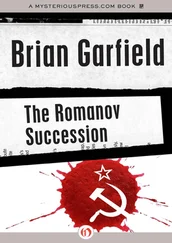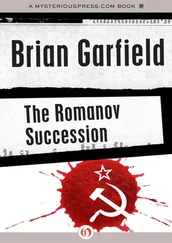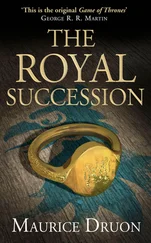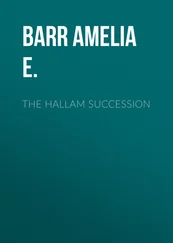William Tyree - Line of Succession
Здесь есть возможность читать онлайн «William Tyree - Line of Succession» весь текст электронной книги совершенно бесплатно (целиком полную версию без сокращений). В некоторых случаях можно слушать аудио, скачать через торрент в формате fb2 и присутствует краткое содержание. Год выпуска: 2010, Издательство: Massive Publishing, Жанр: Триллер, на английском языке. Описание произведения, (предисловие) а так же отзывы посетителей доступны на портале библиотеки ЛибКат.
- Название:Line of Succession
- Автор:
- Издательство:Massive Publishing
- Жанр:
- Год:2010
- ISBN:нет данных
- Рейтинг книги:3 / 5. Голосов: 1
-
Избранное:Добавить в избранное
- Отзывы:
-
Ваша оценка:
- 60
- 1
- 2
- 3
- 4
- 5
Line of Succession: краткое содержание, описание и аннотация
Предлагаем к чтению аннотацию, описание, краткое содержание или предисловие (зависит от того, что написал сам автор книги «Line of Succession»). Если вы не нашли необходимую информацию о книге — напишите в комментариях, мы постараемся отыскать её.
Line of Succession — читать онлайн бесплатно полную книгу (весь текст) целиком
Ниже представлен текст книги, разбитый по страницам. Система сохранения места последней прочитанной страницы, позволяет с удобством читать онлайн бесплатно книгу «Line of Succession», без необходимости каждый раз заново искать на чём Вы остановились. Поставьте закладку, и сможете в любой момент перейти на страницу, на которой закончили чтение.
Интервал:
Закладка:
“I still don’t.”
The Chairman laughed. “Admiral, in your opinion, why will most of the wars be fought in the next hundred years?”
“That’s an easy one,” Admiral Bennington said. “Water.”
Every head at the table nodded.
“Water,” Wainewright repeated. “H2O. Fact: at our current consumption rate, factoring in steady population growth, the United States won’t have enough clean drinking water for the western United States within twelve years. Think about it. We already import everything from labor to matchsticks. Do we really want to import water too?”
The Secretary of the Interior, a small, wiry man who had once been an executive at Exxon, agreed. “The Canadians are already ratcheting up their prices,” he said. “They’re sitting on enough water to supply the U.S. for the next hundred years, but it’s going to bankrupt us.”
The head of the House Foreign Intelligence Committee checked her watch. “General, I have to leave in ten minutes. You were asked about Iran, and I’d like to hear the answer.”
“Everyone assumes that Iran has had its best scientists working on building nukes for the past decade,” Wainewright said. “That’s just a sideline. They have in fact been focusing on a breakthrough in desalination. I visited the plant near the Caspian Sea personally last month.”
Farrell gasped. He, and everyone in the Federal Government, had been told that Wainewright had been in Afghanistan, not Iran.
“The Iranians are building massive underground reservoirs,” Wainewright went on. “Trust me. I drank water that had been in the Caspian Sea just one day earlier. This innovation is as seminal as when we split the atom. But the Iranians aren’t dumb. They realize this is more valuable than oil.”
“They’re going to export it?” Farrell asked.
“Sure as I’m standing here,” Wainewright said. “Now you understand Iran’s true motives. They don’t just want to destroy Israel. They want to occupy it for their new business.”
“From Israel they could build a pipeline to Saudi Arabia, Egypt, Jordan, Lebanon, Turkey,” said Admiral Bennington. “And they’d have a port right on the Mediterranean. They could ship water anywhere in Europe.”
A congressman with a bad combover cleared his throat and leaned his elbows on the table. “Does President Hatch know about the desalination technology?”
“Of course,” Wainewright said. “But he’d rather bankrupt the country by buying water from the Canadians instead of dealing with Iran.”
Bennington was getting impatient. “You’ve made it plenty clear why the Iranians need us,” he said, “but you still haven’t answered my question: What do we get out of this?”
“The technology,” Wainewright said. General Shufford guffawed, but the Chairman stayed on message. “I know it’s difficult to accept that we might actually need technology from a country like Iran. That isn’t supposed to be the way the world works. But none of the desalination techniques we’ve been working on come close. What the Iranians have done will solve all our needs. And they’re going to give it to us. We don’t even have to help them fight Israel. We just have to stand aside while they do.”
The congresswoman from South Dakota raised her hand. “General, from the time we get the technology, how long will it take to build the desalination plants?”
“Took the Iranians fifteen years once they figured it out,” Wainewright said. “They think we can get it done in two.”
Union Station, Washington D.C.
7:15 p.m.
The commuter train slowed as it entered the D.C. suburbs. Julian Speers sprawled in a business class booth. The conductor’s voice crackled over the speakers: “This is Union Station. Union Station.” He woke from a snatch of dreamless sleep and shook his numb left arm awake. With his right, he scratched the chigger bites on his neck.
He saw the Capitol Rotunda out the window and forced himself alert. Soon Union Station, the most celebrated Beaux-Arts structure in the country, came into view.
“Attention,” the conductor’s voice broke through again. “Attention please. The District of Columbia and its outlying areas are under martial law. All private citizens are required to remain indoors after eight o’clock p.m.”
As they pulled into the station, the Ulysses MPs and their German Shepherds soon came into view. Speers got up and went directly to the restroom, where he locked the door and sat on the toilet. He didn’t have to go. He hadn’t had anything to eat or drink all day. He only needed to stay hidden until the MPs completed their sweep.
Speers listened to the passengers disembarking. Someone tugged on the door — it sounded like an old woman — pounded on it briefly and pleaded for him to hurry. Speers did not reply. He did not move. Eventually he heard the woman move on, complaining to anyone who would listen.
Moments later, Speers heard heavy boots on the linoleum floor and the click-clack of canine claws. Again Speers waited as silently as he could. He sat so still that his legs went to sleep, and he had to flex his calves to keep the flow of blood rushing through them. Chunks of dirt fell off his mud-caked shoes.
Sixteen minutes later he heard the whirring of an industrial-strength vacuum and opened the door a crack to peer down the aisle. A cleaning lady was cleaning up a spilled beverage. He opened the door further and, through the window, saw the MPs and their dogs congregated at the far end of the platform.
The cleaner, a rotund brown woman in a tent-like blue smock, spotted Speers as he returned from the toilet. “’Bout time,” she shouted as she grabbed a bottle of anti-bacterial spray and some paper towels and slid past. Speers waited for her to shut the tiny bathroom door. Then he snagged her cleaning cart — full of mops and brooms and cleaning supplies — and pushed it out of the train ahead of him, using it as a shield as he headed for the station entrance.
He had been on hundreds of local trains through Union Station in the past three years, and he had twice been led on evacuation drills by the President’s secret service through the station’s underground tunnels. But only now, entering from the commuter train platform, did he understand the extent to which the station had been converted into a huge indoor shopping mall. Dozens of chain stores and eateries stretched out before him.
Union Station was a massive temple of marble, gold leaf and virgin white granite. He had seen figures stating that four million passengers passed through each year, and it seemed to Speers that all four million of them were now scrambling to get home before the rapidly approaching curfew.
It had been two years since the last evacuation training. Speers looked for the bookstore where the portal into the tunnels had been built. He stopped at a station kiosk and saw no less than four bookstores on the directory. None of the names rang a bell.
Nothing on this level looked familiar. He pushed through the throngs of black-and-grey-clad government workers, lobbyists and Hill aides. Two Ulysses MPs chatted not 30 feet from him. One of them followed Speers with his eyes as the other kept yakking.
Finally, nestled between the Jamba Juice and Agent Provocateur, Speers found Capitol Books. The tunnel entrance.
During President Hatch’s first term, Speers had learned the real reason behind the station’s $70 million dollar restoration effort completed during the Reagan administration. It had been true that the station’s once-magnificent stone inscriptions had gathered mold, and the homeless had colonized like so many rats under the decaying platforms. But beneath all that, the administration had orchestrated an extension of the Capitol’s evacuation tunnels. The enhanced labyrinth of escape routes linked Congress to Union Station, the Eisenhower Building, the White House, the Pentagon, Mount Weather, and Arlington Hills.
Читать дальшеИнтервал:
Закладка:
Похожие книги на «Line of Succession»
Представляем Вашему вниманию похожие книги на «Line of Succession» списком для выбора. Мы отобрали схожую по названию и смыслу литературу в надежде предоставить читателям больше вариантов отыскать новые, интересные, ещё непрочитанные произведения.
Обсуждение, отзывы о книге «Line of Succession» и просто собственные мнения читателей. Оставьте ваши комментарии, напишите, что Вы думаете о произведении, его смысле или главных героях. Укажите что конкретно понравилось, а что нет, и почему Вы так считаете.
